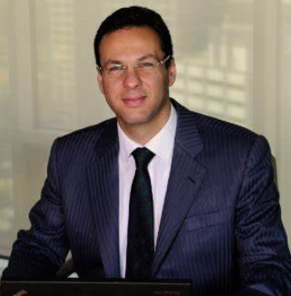By Yücel Ersöz for Enlivening Edge Magazine
It was a day of discovering new thrills in the world of computers. I was a graduate student at Purdue with an insatiable appetite to learn new things, trying to learn C++ language on my own. The code I wrote ran perfectly after a few rounds of debugging. My C++ book declared “Congratulations! You have turned your 3000 dollar computer into 10 dollar calculator”. I was thrilled anyway, to see my code running right.
Fast forward 24 years. An organizational problem I had been working on recently conjured images of that day in my mind. I told myself
“Congratulations! With our command and control structures in the work place we have converted the most sophisticated living being that we know of into a simple machine that can perform only about a few hundred sets of tasks and not much else at the workplace”.
There are several billion employable people on earth. How many different types of job descriptions do we have? An account manager in a sales department has about the same job description just about anywhere you go. A cost accountant, a social media manager, a corporate communications director faces the same situation: Work towards these KPIs or perish.
 The KPIs do not meaningfully change no matter where you go. Smaller companies, multinational giants, pharma companies, cement factories, you name it. The cost accountant, the social media manager, the marketing specialist get a “set menu” of tasks and performance metrics. Is this all that the most sophisticated organism, that we call a human being, can bring to work?
The KPIs do not meaningfully change no matter where you go. Smaller companies, multinational giants, pharma companies, cement factories, you name it. The cost accountant, the social media manager, the marketing specialist get a “set menu” of tasks and performance metrics. Is this all that the most sophisticated organism, that we call a human being, can bring to work?
To make matters worse, people have “managers”. Just about everyone in the work place has a manager to report to. What does the manager truly “manage”? There are several billion types of psyches to work with and the “manager” is supposed to figure out all the right buttons to push to get the best out of each employee.
Is this a realistic expectation? It seems more of a false premise to me. Here goes our unquestioned, subconscious thinking: “People must have managers who tell them what to do because they don’t know better.” But then, there need to be support departments, HR to the fore, to coordinate the management of job descriptions and performance metrics, and to calibrate year-end appraisals. We are forcing people to fit into small boxes and we label each box with a different special name.
We do not bother with the fact that billions of different combinations of skills cannot match the few hundred skill sets prescribed by “management” teams.
Yet we do now shy away from paying lip service to notions we believe in half-heartedly. The ongoing hypothesis is that everyone must be managed by somebody else, but at the end of each appraisal period employees are expected to fill in the self-evaluation form. He/she[1] is not wise enough to work without manager’s “leadership”, and will not work without performance targets, but he is able to evaluate the dreadful performance period that just ended in a perfectly objective manner. I ponder whether we could be more inconsistent in our everyday thinking.
 Is it not true that being rejected by society is one of a human’s darkest fears? How does one become an irreplaceable member of the society? By being unique in what he/she does, but also adding value to the society—and not by making a lot of money, I would argue. This fear might be only a subconscious one, but we certainly know that we are social animals.
Is it not true that being rejected by society is one of a human’s darkest fears? How does one become an irreplaceable member of the society? By being unique in what he/she does, but also adding value to the society—and not by making a lot of money, I would argue. This fear might be only a subconscious one, but we certainly know that we are social animals.
The interaction between our true selves and the rest of the society guides our actions. While we want to fulfill ourselves we also want to be accepted by the society. We all know this intuitively. Yet our command and control structures in the corporate offices try to allay our darkest fear not by giving us the opportunity to be the best versions of ourselves, but by giving us “performance bonuses” if we can best fit into the procrustean[2] boxes prepared by “management”.
How does this malady end? It ends with the inevitable realization that we have turned the most sophisticated living beings into dummy machines.
It ends once enough of us realize that this wonderful product of evolution we call a human being has so much more to offer any business if allowed to bring a whole self in the workplace rather than asked to wear a mask in the masquerade we call corporate life.
Isn’t life so much easier when we allow people to decide what they can contribute to a work place, have them commit to it, and let everyone else decide whether that person lived up to his commitments at the end of each period?
Many next-generation organizations are already doing this very successfully, but there is a myriad of others who have not even started questioning the workplace dogmas we have chiseled in our minds.
It is time we truly get the most out of people not by putting them into a few hundred types of boxes, but by letting them bring their unique skill sets, of which there are billions of combinations on earth. Then the best will pour out from inside every one of us.
 As Heraklion Partners we are committed to spreading the message. To lift the veil from everyone’s eyes, we will start offering a series of training sessions in one of the oldest cities on earth: Istanbul, Constantinople, Byzantium—pick the name you like. Training sessions will concentrate on systems thinking as a first step. We believe every organization is a system with its own fears, hopes, desires, challenges—both conscious and subconscious.
As Heraklion Partners we are committed to spreading the message. To lift the veil from everyone’s eyes, we will start offering a series of training sessions in one of the oldest cities on earth: Istanbul, Constantinople, Byzantium—pick the name you like. Training sessions will concentrate on systems thinking as a first step. We believe every organization is a system with its own fears, hopes, desires, challenges—both conscious and subconscious.
We will build on this foundation with thoughts on personal motivation. We will make the case that only when we are given a chance to be our true selves at the workplace do we bring our best that can create miracles no performance management doctrine can hope to achieve.
We will complete the thinking with the thesis that next-generation organizations—Teal organizations—provide the milieu to achieve this. In each step we will work on a number of case examples with the participants hoping that each participant will see the world as we see it with the case studies they have worked on during the training.
We are right where Europe literally meets Asia. This might be close to some of you, far from many of you. Nevertheless we are here with all our passion and would love to hear from you. Please keep in mind that we are only an email message away from you: [email protected] to contact us, learn more about our offerings or just to discuss and propel forward the Teal worldview together.
[1] To avoid cumbersome repetitions, from here on I will only use “he” to refer to both a female and a male person in the workplace. I firmly believe that both are equally important in any work setting.
[2] I used this out-of-this-world word intentionally here. Please do look up Procrustus, the namesake of this word in any Greek mythology book to get a glimpse of the images that corporate management dogma conjures up in my mind.
 Yücel Ersöz is the founding partner of Heraklion Partners, a management advisory and training firm dedicated to converting the work place into a shrine for self-fulfillment. “Let’s make Aristotle’s idea of eudaimonia a reality”, you can hear him say often. The name Heraklion refers to Crete’s capital city and honors the origins of Yücel’s maternal family.
Yücel Ersöz is the founding partner of Heraklion Partners, a management advisory and training firm dedicated to converting the work place into a shrine for self-fulfillment. “Let’s make Aristotle’s idea of eudaimonia a reality”, you can hear him say often. The name Heraklion refers to Crete’s capital city and honors the origins of Yücel’s maternal family.





I’m wondering whether every workplace can be ‘a shrine to self-fulfilment’, no matter what is being produced? If we are involved in producing weapons of mass destruction, for example, or insecticides that harm bee populations, or any number of jobs that pollute rather than regenerate, can that be ignored?
Somehow this connects with your decision to ‘avoid cumbersome repetitions’ by excluding the female pronoun.